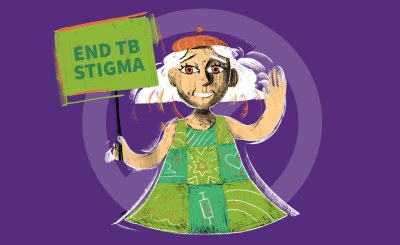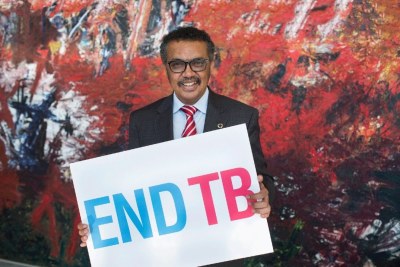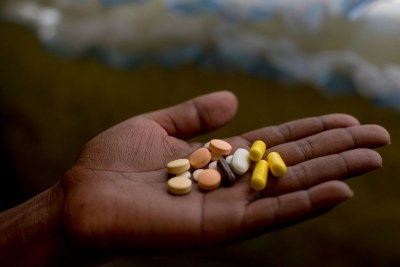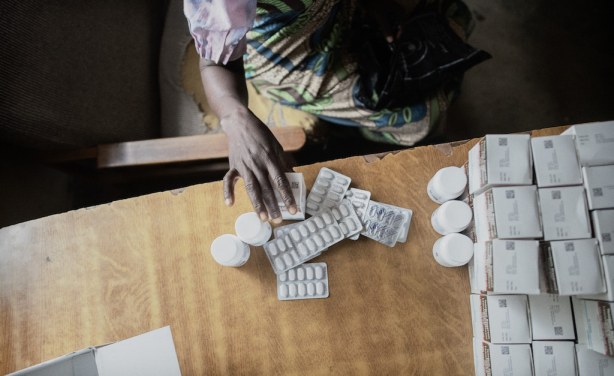-
Africa: TB in Children Isn't Being Controlled - It's Key to Fighting the Disease for Everyone Else
The Conversation Africa, 23 March 2023
World TB Day on March 24th will commemorate the day in 1882 when Professor Robert Koch announced in Berlin that he had discovered the microbial cause of tuberculosis (TB),… Read more »
-
Africa: TB Kills 75,000 Children in Africa Every Year - How This Can Stop #WorldTBDay
The Conversation Africa, 23 March 2023
Tuberculosis (TB) is a preventable and curable disease. Half of the world's 30 highest TB burden countries are in Africa. In many of these countries, TB is the leading cause of… Read more »
-
South Africa: South Africa is Under-Diagnosing TB and Still Needs to Catch Up Post Pandemic
Right to Care, 23 March 2023
Ahead of World Tuberculosis (TB) Day tomorrow, Dr Lucy Connell, TB programme lead at health NPO Right to Care , says, "South Africa has one of the highest TB rates in… Read more »
-
Africa: Why Gender Transformative Leadership Is Key to Ending TB - for Good
IPS, 22 March 2023
Despite being both curable and preventable, the TB pandemic is a global health crisis and a leading cause of death worldwide. COVID-19 brought into sharp focus how women bear the… Read more »
-
South Africa: Supply Issues Delaying Wider Rollout of Shorter TB Preventive Therapy
spotlight, 22 March 2023
Though estimates vary substantially, it is thought that in the region of 300 000 people fall ill with tuberculosis (TB) in South Africa every year. Many more people, however, have… Read more »
-
Africa: WHO Director-General's Opening Remarks At the World TB Day Online Talk - 22 March 2023
WHO, 22 March 2023
Your Excellency Ambassador Chen Xu, Read more »
-
South Africa: New Guidelines Are a Step Forward for SA's TB Response
spotlight, 20 March 2023
In February 2021, findings from South Africa's first national tuberculosis (TB) prevalence survey confirmed what many suspected - every year, tens of thousands of people sick with… Read more »
-
South Africa: UCT's HIV and TB Hotline - Serving Healthcare Workers, Communities for 15 Years
UCT, 15 March 2023
The University of Cape Town's (UCT) National HIV and TB Healthcare Worker hotline has served healthcare workers across the length and breadth of South Africa. Established as a… Read more »
Controlling TB in Children is Key to Fighting the Disease For All
World TB Day on March 24th commemorates the day in 1882 when Professor Robert Koch announced in Berlin that he had discovered the microbial cause of tuberculosis (TB), Mycobacterium tuberculosis.
In 2002, a large, landmark autopsy study was undertaken by visionary African scientists and pathologists on 164 children who died of respiratory illness in Lusaka, Zambia. The study found that 25% of deaths were due to TB. It was only then that the World Health Organization (WHO) recognised that TB in children was a neglected disease, write Tom Nyirenda, Alimuddin Zumla and Francine Ntoumi for The Conversation.
In 1993 TB was declared a global public emergency of international concern - and still is 30 years later. The focus at that time was on adult TB, while childhood TB was not thought to be important. Accurate evidence of the scale of the problem wasn't available. Over the ensuing decade, thousands of African children died of TB and TB/HIV co-infection every year.
Effective treatment for TB has been available since 1952 but it continues to be the world's top cause of death from a single infectious disease - despite being both curable and preventable.
Covid-19 brought into sharp focus how women bear the brunt of pandemics. In 2021, over three million women and girls fell ill with TB, resulting in 450,000 needless deaths. Nyuma Mbewe and Swati Krishna for Inter Press Service report that, to better understand how gender norms and inequalities increase the burden, stigma and discrimination on women resulting in the failure to prevent, detect and treat TB infection, adopting an intersectional lens is a necessary step.
The World Health Organisation is urging all member states to accelerate the rollout of new WHO-recommended shorter all-oral treatment regimens for drug-resistant TB.
The theme of World Tuberculosis Day this year is short and to the point: 'Yes! We can end TB!'
InFocus
-
The uptake and continuation of tuberculosis preventive therapy were much higher when it was provided through a community-based model compared to the standard clinic-based model, a ... Read more »
-
The World Health Organization (WHO) Director-General Tedros Adhanom Ghebreyesus has announced a plan to create a new Tuberculosis Vaccine Accelerator Council. Speaking Read more »
-
The results of a clinical trial, published in the New England Journal of Medicine, has shown that a new six-month regimen for drug-resistant tuberculosis (DR-TB) is safer, more ... Read more »
-
According to early findings from the landmark TRUNCATE TB trial presented at the Union World Conference on Lung Health, some cases of tuberculosis (TB) can be successfully treated ... Read more »
-
According to Spotlight, evidence is mounting that, as with Covid-19, people can have active TB disease and be infectious without having any symptoms. The use of digi Read more »








